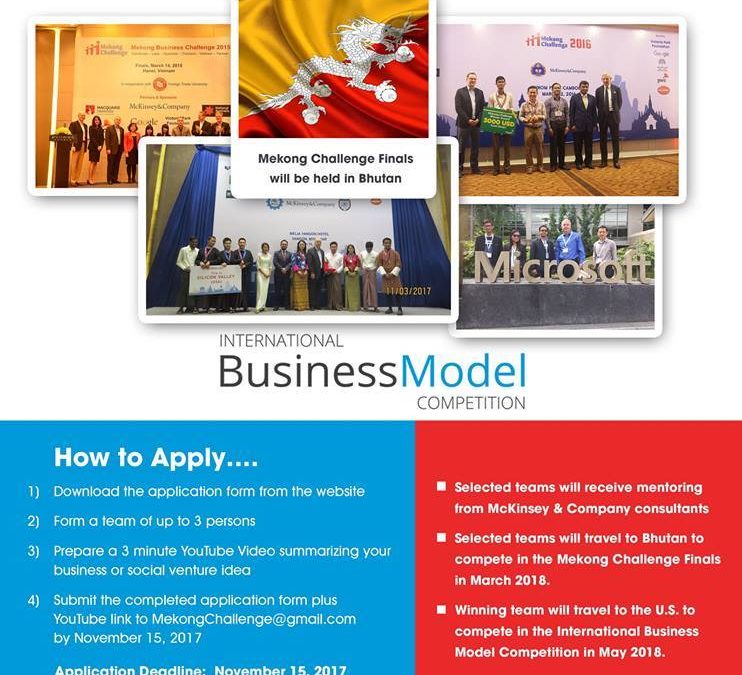
by Mark Anderson | Sep 27, 2017 | News
The National University of Phnom Penh, one of SEASIN’s members, is very pleased to announce the opening of applications for the Mekong Challenge 2017-18!
This is a competition looking for innovative business models and social venture ideas from university students in the Mekong Region as well as Bhutan.
University students and recent graduates from Bhutan, Laos, Thailand and Vietnam, Cambodia, Myanmar and Yunnan Province, China, are encouraged to apply.
Find out more through the website: https://sites.google.com/site/mekongchallenge/
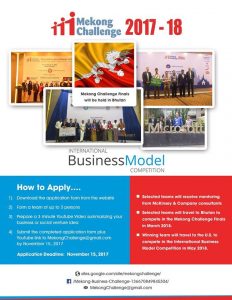
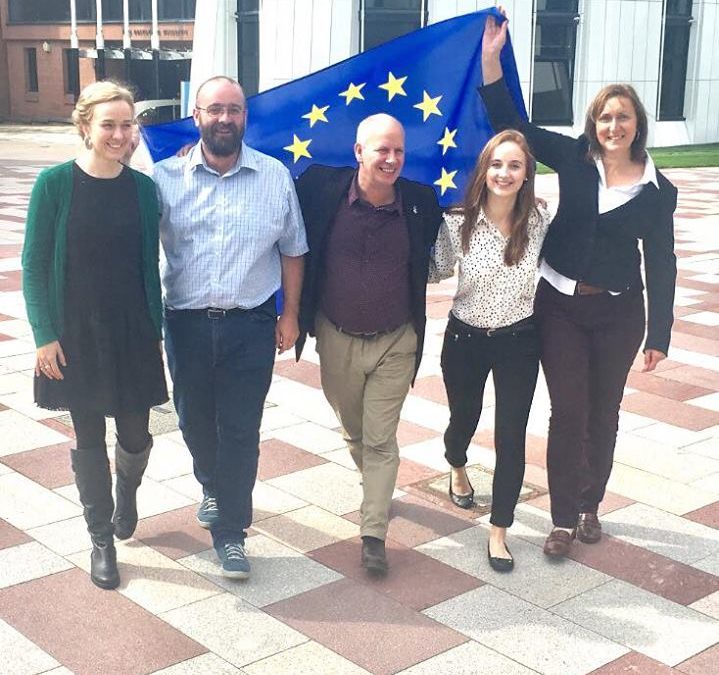
by Mark Anderson | Sep 27, 2017 | News
As the SEASIN network starts to engage the global public in our work projects, we wanted to give everyone a chance to get to know a little bit about our partners and what it means for them to be a part of SEASIN. To start of this interview series, we’ll hear from the SEASIN’s project initiators: Glasgow Caledonian University.
In your perspective, what kind of role should universities (HEIs) play in the society? What is HEI’s role supporting social innovation?
A University can be pivotal in the social innovation process because it can represent an intermediary in the subversive elements of social innovation and the funders’ and policy makers’ needs for impact measurement and quality assurance, lending academic rigour to anecdotal reports. But universities can also offer support through the use of space, training, research, and networks.
What does social innovation look like in your country? What is it’s potential?
Scotland is in many ways the cradle to innovation with its long history of cooperatives and community engagement (New Lanark etc.) and there is a real policy interest in the field. However, the danger of this is that the terminology of social innovation is appropriated for activities which are not necessarily in line with current thinking on social innovation or that the activities become more generalized or misunderstood by communities.
What do you hope to achieve out of SEASIN project?
SEASIN is one of a number of international projects which focus on the role of universities to support and drive social innovation through knowledge exchange. As such, we are hoping that the project will help to develop a close community of universities and social innovators that can effect real social change within their communities.
How can we collaborate better across the region?
Exchange of best practice and the development of close partnerships – both formal and informal – between universities and social innovators.
What are you most excited about for this project?
Discovering new communities and networks and making a real difference within the communities with which we work.
Thanks Glasgow Caledonian University!
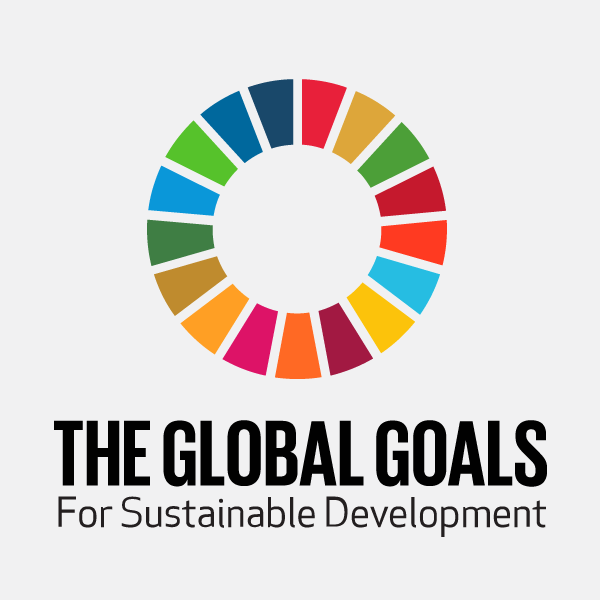
by Mark Anderson | Sep 18, 2017 | News
We are coming up for the second anniversary of the 17 Development Goals laid out by the UN in 2015. The goals cover a spectrum of issues around Justice, peace, sustainability and equality; and are in essence a game plan for saving the world. The goals are:
- No Poverty
- Zero Hunger
- Good Health and Wellbeing
- Quality Education
- Gender Equality
- Clean Water and Sanitation
- Affordable and Clean Energy
- Decent Work and Economic Growth
- Industry, Innovation and Infrastructure
- Reduced Inequalities
- Sustainable Cities and Communities
- Responsible Consumption and Production
- Climate Action
- Life below Water
- Life on Land
- Peace, Justice and Strong Institutions
- Partnerships for the Goals
Each of these goals are ambitious but also simple. There are easy things we could all be doing in our daily lives to help achieve these; ranging from activity levels of lazy to intensely active. Each goal has synergies with the other goals; so making small changes in your daily life can make a difference in a number of areas. These could involve doing laundry on a lower temperature, or eating less meat. Although some of the ramifications of these small actions may not be apparent, small changes like this can have a bearing on emissions; agriculture; food security; sustainability; wildlife preservation; and even on issues like poverty eradication and equality for all.
These goals, however, are not limited to every day domestic and lifestyle modifications. These goals are also pertinent to organizations, governments and businesses. Organizations can set an example by ensuring they champion women and men equally in the workplace and ensure equal pay between genders; this sets examples for other businesses but has an effect on wider issues such as equality within society; innovation; peace; justice; and health and wellbeing among the population. One organization undertaking these kinds of actions can set an example for other industries, society, governments and other countries. Once a trend sets in, others will follow. All we need is for one person to set in motion a new idea or trend – things then start to change. Standing alone to do this can be difficult; and this is why a cohesive effort from every day changes in your own life; to organizational change; to worldwide change requires strong partnerships to achieve these goals – Goal 17.
Partnerships are important for strengthening ideas and innovations. They offer a support network and a range of skills, ideas and resources to make the biggest impact possible. At GCU we have a number of projects in the area of Social Innovation; designed to create, nurture and strengthen partnerships across the world; to create a better, kinder and fairer world. Our EU co-funded Erasmus Plus Projects LASIN, SEASIN, Common Good First and Strategy for Change Projects focus on this area. In particular focused on the ‘network growing’ element are our Latin American Social Innovation Network, South East Asia South Innovation Network and Common Good First (focused on creating a similar digital Network in South Africa). We look at our strengths – as a university – and we examined how we might use this to create more impact. These projects aim to strengthen universities within their regions and the relationships they have to communities, innovations and ideas. Universities can support social innovation in their academic setting and outside – creating a fusion of strengths and resources. Of course the universities on their own cannot do it all; so by fostering the relationships and networks already there across society and communities; and growing new networks – we can create partnerships that generate the kind of change we need to make the world a better place.
Submitted By Glasgow Caledonian University


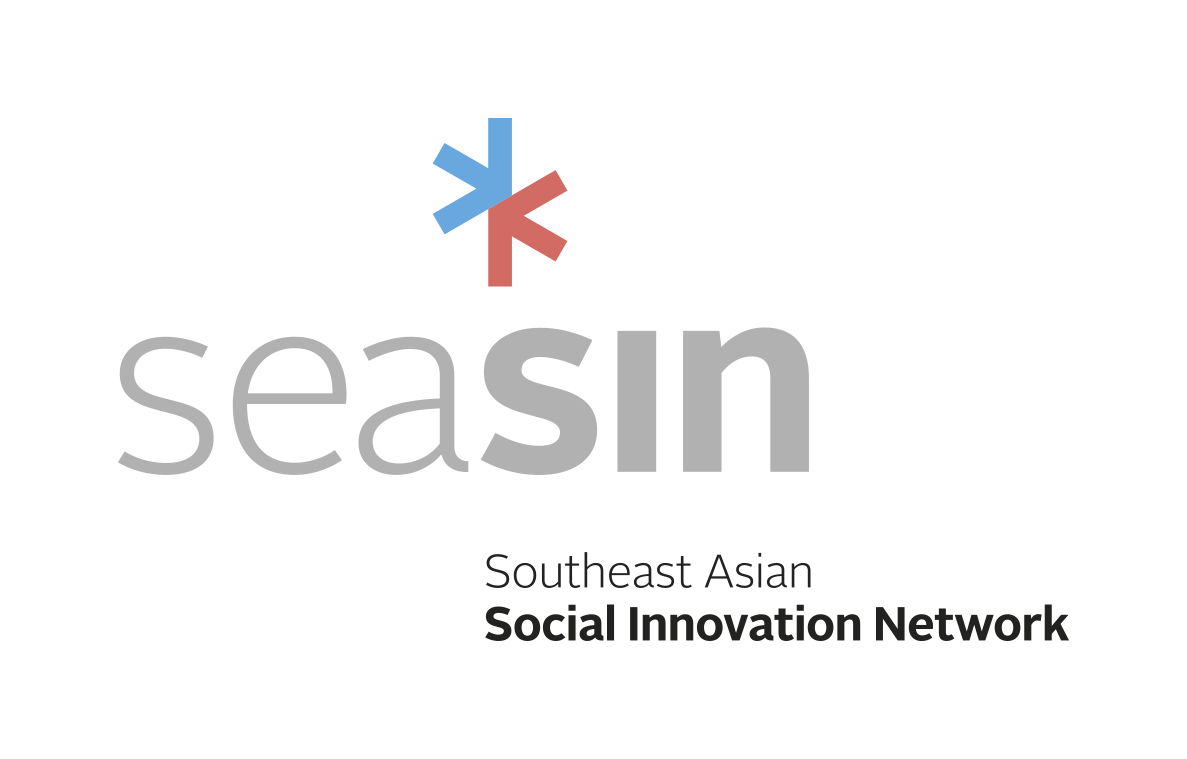


Recent Comments